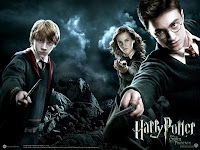In the opening days of school, my son encountered some trouble on the playground. He came home visibly upset and his tales pulled at my heartstrings. What could I do? He was struggling and I wanted to make it all better. Naturally, marching onto the playground and wagging my finger in front of the noses of those schoolyard bullies wasn’t an option. I felt stuck.
So I handled it the way I suspect most parents might. I reviewed the protocol for playground problem solving: ignore it, walk away, tell a grown-up. But that didn’t placate him. That wasn’t what he needed to know. He wanted to understand why—why do people act this way?
Hmmm. Good question. How does one explain what motivates ill-will and mean-spirited, hurtful human behavior? Why DO people act this way?
As I stuttered and stumbled my way toward an explanation, my son began to mull over his own question. He said, “You know, Adam is kind of like Voldemort because he’s the leader. He’s really mean and yet the other kids, Zach and Ian follow him and do bad stuff for him. They’re kind of like the Death Eaters.”
I couldn’t believe it. In that moment, Harry Potter’s magic permeated the walls of Hogwarts and took hold in my very own kitchen in Long Island, New York. Through The Sorcerer’s Stone and The Chamber of Secrets and The Prisoner of Azkaban, my son had met and come to know a motley and interesting cast of characters. Some he admired and others he saw as downright loathsome and wicked. But either way, these people made sense to him. In Harry Potter’s world, evil and ill-will had a place. We giggled as we imagined the Whomping Willow attacking his tormentors and we wondered what spells Harry Potter might cast to retaliate and fight this brand of school yard evil.
In his book Readicide (Amazon affiliate link), Kelly Gallagher cites Kenneth Burke who postulates that reading is important for children because “it provides them with ‘imaginative rehearsals’ for the real world.” The world can be big and bad and ugly and good authors know that good stories weave the world’s complexities into their plots and characters. Through reading, children are exposed to many of the complicated issues that they might meet in the real world. And though they may whine and question why they have to read, I can think of no better reason than to tell them to take heed, because they can never know when they might need to know what Harry Potter would do.
(Amazon affiliate link), Kelly Gallagher cites Kenneth Burke who postulates that reading is important for children because “it provides them with ‘imaginative rehearsals’ for the real world.” The world can be big and bad and ugly and good authors know that good stories weave the world’s complexities into their plots and characters. Through reading, children are exposed to many of the complicated issues that they might meet in the real world. And though they may whine and question why they have to read, I can think of no better reason than to tell them to take heed, because they can never know when they might need to know what Harry Potter would do.

